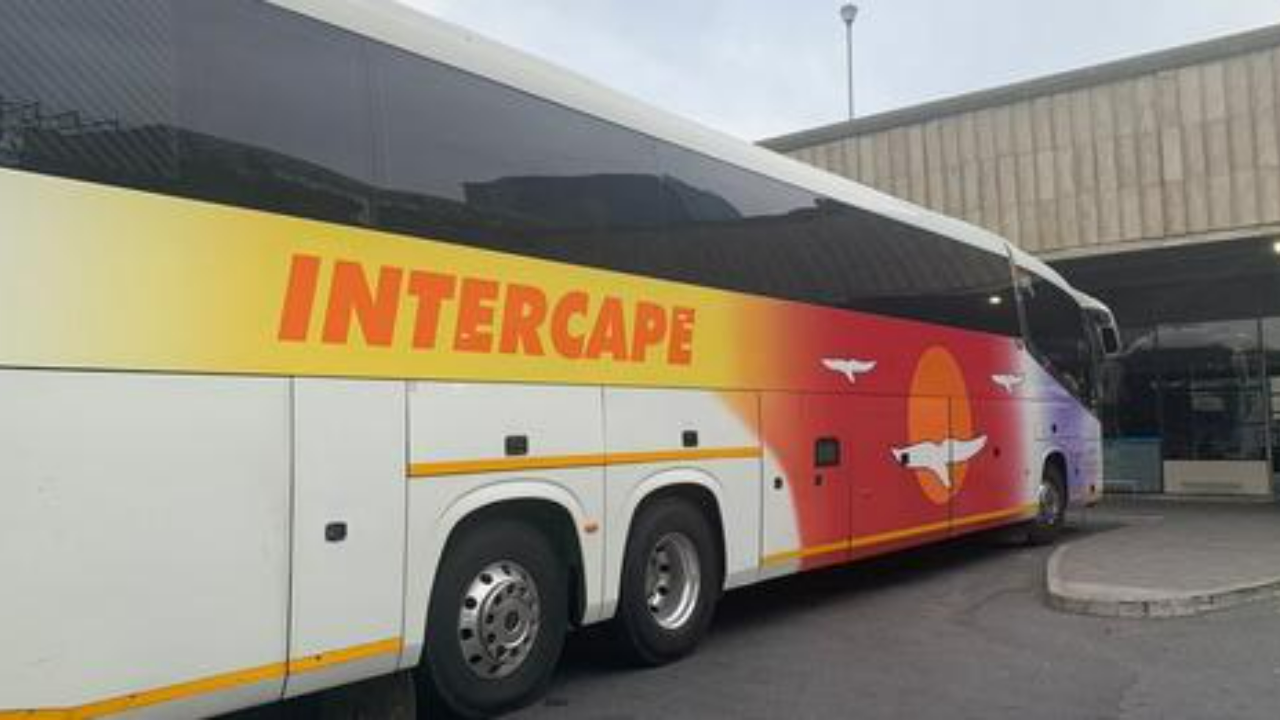News
Calls for Government Intervention in Intercape Bus Attacks

A scathing critique from Makhanda High Court Judge John Smith has spotlighted the glaring inadequacies of an action plan designed to curb the relentless surge of attacks on Intercape buses within the Eastern Cape. The judge’s warning directly responded to a prior order he had issued, commanding the transport minister and the MEC to formulate a comprehensive strategy. This directive appeared to have fallen on deaf ears, as evidenced by a continuous onslaught of attacks. Judge Smith’s resolve to rectify this shortcoming was evident as he emphasised his determination not to endure misunderstanding again, as reported by African Insider.
Also Read: SABC’s Samora Mangesi Arrested for Suspected Drunk Driving
Drawing on his previous ruling during an application brought by Intercape in September 2022, Judge Smith openly expressed his disappointment at the lack of attention the minister and the MEC paid to his directive for an action plan. He candidly admitted that he had been “naive” in assuming they had comprehended his message and declared his resolve to avoid such miscommunication.
Last year, Judge Smith issued an order necessitating the minister and the MEC, in collaboration with SAPS and the Eastern Cape Regulatory Entity, to devise a comprehensive blueprint ensuring the safety of long-distance bus drivers and passengers. This directive also required them to outline a timeline for implementing these measures, which would subsequently be presented under oath to the court.
The urgency of this order was rooted in the uncontroverted evidence of sustained violence against Intercape by rogue taxi associations. Despite these serious matters, the minister’s attempt to appeal was declined, and the development of the action plan was carried out solely by the MEC, albeit later endorsed by the minister.
Intercape, plagued by bus attacks, characterised the ensuing action plan as notably deficient. After engaging with the MEC, the minister, and SAPS officials in December 2022 to address the inadequacies, Intercape found the amended plan to be meagerly altered. Faced with persistent attacks and a lack of substantial progress from engagements, Intercape sought interim relief from the court in June of this year.
In response, an interim order was granted, compelling the MEC and the minister to devise an improved plan and requiring SAPS to bolster their presence in high-risk areas and provide police escorts along specific routes.
Upon reevaluation, Judge Smith’s recent ruling this week condemned the action plan as “woefully inadequate,” substantiated by the continuous onslaught against buses. Over five months, Intercape reported no less than 30 criminal complaints, ranging from bus stoning and obstruction of drivers to intimidation of passengers, shootings, and even a passenger being struck by a bullet.
The judge noted that all these incidents shared a common thread of arrogance and impunity on the part of the attackers, encouraged by a conspicuous absence of visible law enforcement. He underscored that a vague action plan, devoid of specificity, sends a disheartening message to wrongdoers – that authorities do not intend to utilise their extensive statutory powers to quell the violence. Paradoxically, Judge Smith implied that having no action plan at all might be more effective than an ill-defined one.
Highlighting the court’s expectations, Judge Smith maintained that an action plan should exhibit a clear grasp of the severity of the situation and lay out actionable measures and key interventions. He criticised the MEC’s plan as excessively vague, lacking in clarity, and filled with ambiguous language.
In response to this deficiency, Judge Smith issued a more unequivocal order, requiring the MEC and the minister to provide specific and measurable details. This includes precise dates and frequencies for implementing measures, identifying responsible entities, delineating interventions in high-risk zones, utilising statutory powers, and appointing a task force to oversee and monitor the plan’s execution.
The judge strongly refuted the notion that Intercape’s intentions were commercially motivated. He decried the baseless assertion that the company sought preferential treatment and highlighted the court’s focus on bus drivers’ and passengers’ safety and security. He expressed frustration at the difficulty law enforcement seemed to have in grasping the gravity of the situation – where armed assailants target moving buses, foreseeing dire consequences that could culminate in injuries or even fatalities.
Judge Smith’s critique exposes the glaring inadequacies of the action plan designed to address attacks on Intercape buses. His ruling calls for a more definitive and actionable strategy while firmly asserting the paramount importance of passengers’ safety and the need for robust law enforcement intervention.
Also Read:
Follow us on Google News
Photo: Facebook / @GroundUp






















